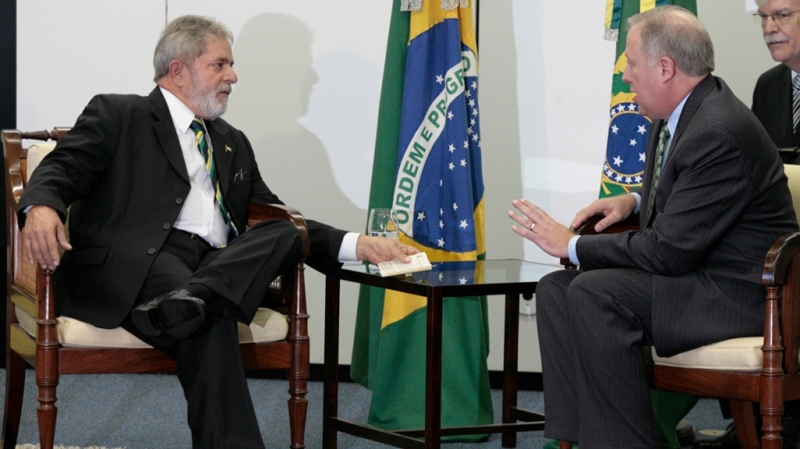Rising Brazil: The Choices Of A New Global Power
What should we expect from a newly powerful Brazil? Does the country have the capacity and leadership to be a central actor in addressing critical global and regional problems?
On the Latin America in Focus podcast hosted by AS/COA, Ambassador Thomas Shannon, co-chair of the Inter-American Dialogue Board of Directors, discussed the outcome of the recent Brazilian elections and their influence on global politics.
"...At the end of the day, the important thing about elections is that people get to express their point of view. Obviously the Brazilian people have chosen a new president, but what's important here is that Brazilian democracy functioned, that the institutions showed not just their rootedness, but their resilience, and that at the end of the day, even President Jair Bolsonaro has acknowledged that he lost this election.
And this is a powerful moment for Brazilian democracy. And it's a powerful moment in the hemisphere, and I think globally because it shows that democracy works and that you can do peaceful transfers of power. This is important. It's also important for the United States as we face something similar. But broadly speaking about what it means for Latin American diplomacy and Brazil's role in the world—the world is very different than during the period of time that President Lula was in office.
But that said, I think what Lula's victory means is that Brazil is returning to a global role that it had begun to assume for itself during the presidency of President Lula, in which it emerged not only as a large economy, but as a country dedicated to peaceful resolution of disputes, dedicated to multilateral organizations, and looking for ways to advanced Brazil's interests within the structures that Brazil had played a role in building in the aftermath of World War II. And so in this sense, Brazil's presence is going to strengthen the multilateral structures of our hemisphere, the intra-American system, but it will also strengthen the UN structures, and I think it will be a positive and important influence in trying to resolve some of the larger transnational global issues that we face, including climate change."
What should we expect from a newly powerful Brazil? Does the country have the capacity and leadership to be a central actor in addressing critical global and regional problems?
President Lula da Silva triumphantly announced that he and his Turkish counterpart had persuaded Iran to shift a major part of its uranium enrichment program overseas—an objective that had previously eluded the US and other world powers. Washington, however, was not applauding.
An upcoming meeting between Presidents Obama and Rousseff should not be expected to produce dramatic news or unexpected major breakthroughs.
 AP, accessed via AS/COA
AP, accessed via AS/COA